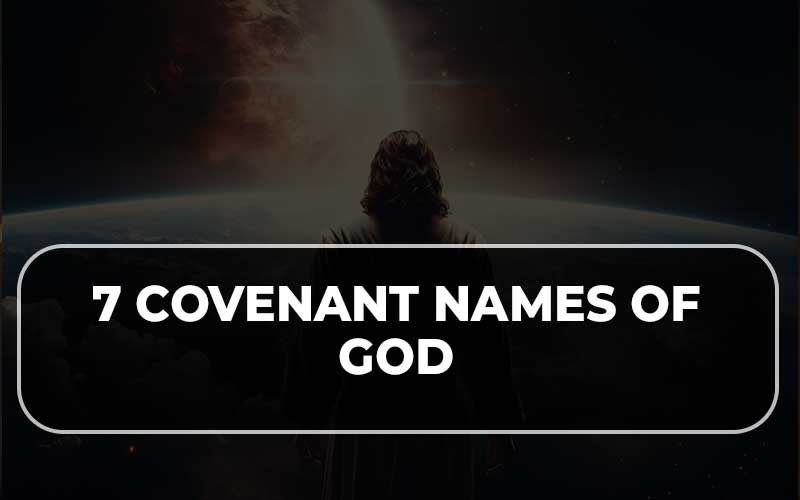In the sacred scriptures of the Bible, the Almighty reveals Himself through a series of profound covenant names, each unveiling a unique aspect of His character and relationship with humanity.
These names, often referred to as the “I AM” statements, serve as glimpses into the nature of God and His unchanging commitment to His people.
From the majestic proclamation of “I AM WHO I AM” to the tender assurance of “The Lord Our Righteousness,” each covenant name invites believers to explore the depths of their Creator’s attributes.
In this exploration, we dive into the significance of the seven covenant names of God, drawing insights from the corresponding biblical verses. Through these names, God showcases His role as a healer, provider, banner of victory, sanctifier, source of peace, and the epitome of righteousness.
Each name carries a profound message, resonating through the pages of scripture and echoing across generations, offering guidance, comfort, and assurance to those who seek to understand the nature of the Divine. Join us on this journey as we unravel the rich tapestry of God’s covenant names and discover the depth of His character woven into the fabric of creation.
7 Covenant Names of God
Yahweh (Jehovah):
Exodus 3:14 reveals God’s self-proclaimed name to Moses at the burning bush. “I AM WHO I AM” signifies God’s eternal and unchanging nature. This name emphasizes God’s self-existence and sovereignty over all creation. It establishes a personal and intimate connection with His people, conveying that He is present and active in their lives.
Yahweh-Rapha:
Exodus 15:26 highlights God as “the Lord who heals you.” This name emphasizes God’s role as a healer, not only in physical ailments but also in spiritual and emotional restoration. God’s healing power extends beyond the physical realm, encompassing every aspect of human brokenness.
Yahweh-Jireh:
Genesis 22:14 is linked to the story of Abraham and Isaac. God provides a ram for sacrifice, and Abraham names the place “The Lord Will Provide.” Yahweh-Jireh signifies God as the provider, not just materially, but also in times of need and testing. It reflects trust in God’s provision, even in seemingly impossible situations.
Yahweh-Nissi:
Exodus 17:15 emerges after a battle with the Amalekites, where Moses builds an altar and declares, “The Lord Is My Banner.” Yahweh-Nissi represents God as a banner, symbolizing His presence and victory. This name underscores God’s role as the leader and protector of His people, guiding them to triumph.
Yahweh-M’Kaddesh:
Leviticus 20:8 instructs the Israelites to keep God’s statutes, emphasizing, “I am the Lord who sanctifies you.” Yahweh-M’Kaddesh portrays God as the one who sets apart, sanctifies, and consecrates His people. This name emphasizes the holiness required of His followers and the transformative power of His presence.
Yahweh-Shalom:
Judges 6:24 follows Gideon’s encounter with God, where he builds an altar and names it Yahweh-Shalom, meaning “The Lord Is Peace.” This name signifies God as the source of true peace, not just the absence of conflict but a holistic peace that encompasses well-being and harmony. It reflects the tranquility found in a relationship with God.
Yahweh-Tsidkenu:
Jeremiah 23:6 prophesies about a future righteous ruler from the line of David, named “The Lord Our Righteousness.” Yahweh-Tsidkenu highlights God as the source of righteousness. This name points to the ultimate fulfillment of God’s justice and righteousness through the promised Messiah, Jesus Christ.
These covenant names reveal different facets of God’s character and highlight His multifaceted relationship with His people, providing comfort, guidance, and assurance in various aspects of life.
Also Read: The Life and Death of Apostle Thomas

